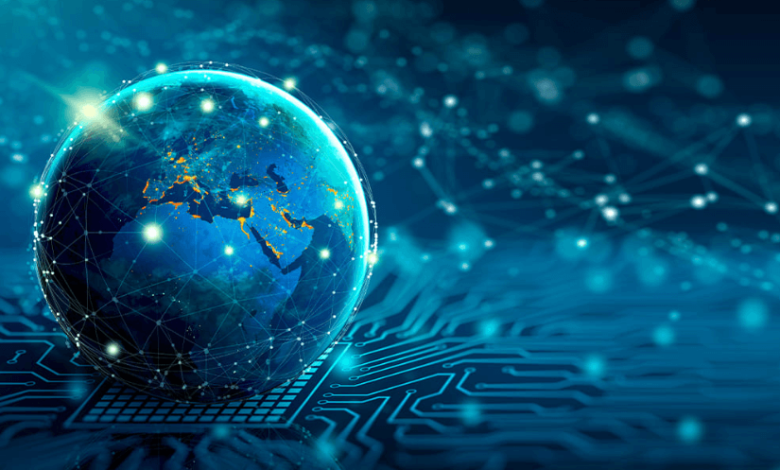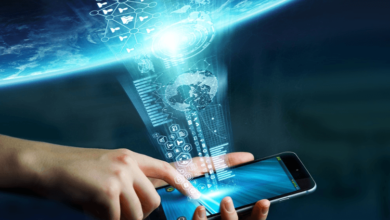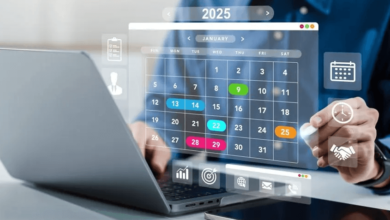The Future of Technology: Trends Reshaping Our World

Technology is no longer just a tool; it has become the foundation of modern society. From the way we communicate to how we work, travel, and learn, innovation shapes every aspect of life. In 2025 and beyond, advancements such as artificial intelligence (AI), cloud computing, 5G networks, blockchain, and green technology are transforming industries worldwide. To thrive in this digital era, individuals and businesses must adapt to the ever-changing technological landscape. Trends in 2025 are reshaping our world, and QR code integration is a key factor in this technological shift.
Artificial Intelligence: Driving Smarter Solutions
Artificial Intelligence is the most disruptive force of our time. AI is not limited to voice assistants like Siri or Alexa—it is powering critical sectors:
- Healthcare: AI analyzes scans, predicts diseases, and creates personalized treatments.
- Retail: Smart chatbots and recommendation engines enhance customer experiences.
- Finance: Fraud detection and algorithmic trading are making banking safer and faster.
Experts estimate AI could contribute over $15 trillion to the global economy by 2030, making it the backbone of future technology.
Cloud Computing: The Digital Backbone
Cloud computing has become essential for businesses in 2025. Instead of depending on expensive servers, organizations use cloud platforms for flexibility and scalability.
- Remote Work: Teams collaborate globally through cloud-based tools.
- Data Security: Advanced encryption keeps sensitive information safe.
- Cost Savings: Companies pay only for the resources they use.
Cloud technology allows businesses to grow faster, reduce costs, and stay competitive in the global marketplace.
See also: The Future of Technology: Trends Shaping 2025 and Beyond
Internet of Things (IoT): Connecting Everyday Life
The Internet of Things connects billions of devices, creating smarter homes, cities, and industries.
- Smart Homes: IoT systems control appliances, lights, and security cameras.
- Healthcare: Wearables monitor vital signs and send data to doctors in real time.
- Smart Cities: IoT sensors optimize traffic, waste management, and energy use.
By 2030, more than 30 billion IoT devices are expected to be in use, reshaping how humans interact with technology.
Cybersecurity: A Digital Shield
With more devices online, cyber threats are growing rapidly. Cybersecurity has become a top priority for governments, companies, and individuals.
- AI-Powered Defense: Detects unusual activity instantly.
- Multi-Factor Authentication: Protects users from unauthorized access.
- Awareness Training: Reduces human error in online activities.
The cost of cybercrime is predicted to exceed $10 trillion annually by 2025, making cybersecurity investments critical.
5G Networks: Powering Ultra-Fast Connectivity
5G technology is revolutionizing communication by offering ultra-fast speeds and low latency.
- Entertainment: Streaming, gaming, and video calls are smoother than ever.
- Autonomous Vehicles: Real-time communication ensures safe self-driving.
- Healthcare: Remote surgeries and telemedicine become possible with 5G precision.
5G is also fueling innovations like augmented reality (AR) and smart factories that depend on instant connectivity.
Blockchain: Building Trust in the Digital Era
While blockchain is known for cryptocurrency, its applications go far beyond Bitcoin.
- Banking: Provides secure and transparent financial transactions.
- Supply Chains: Tracks goods from manufacturers to consumers.
- Healthcare: Protects patient data from being altered or stolen.
Blockchain ensures transparency, making it a powerful tool for industries where trust and security are vital.
Green Technology: Innovation for Sustainability
Sustainability is now a global priority, and technology is leading the way.
- Electric Vehicles (EVs): Reducing dependency on fossil fuels.
- Renewable Energy: Solar, wind, and hydropower innovations cut carbon emissions.
- Smart Grids: AI-based systems reduce waste and optimize energy distribution.
Green technology proves that progress and environmental responsibility can go hand in hand.
Emerging Technologies to Watch
Beyond current trends, several new technologies are on the horizon:
- Quantum Computing: Solving complex problems beyond the reach of today’s computers.
- Metaverse: Creating immersive digital spaces for education, business, and entertainment.
- Biotechnology: Genetic research improving medicine and agriculture.
- Artificial General Intelligence (AGI): AI that thinks and learns like humans.
These innovations may redefine industries and everyday experiences in the near future.
Conclusion
Technology in 2025 is not just about convenience—it is about transformation. From AI, IoT, and cloud computing to 5G, blockchain, and green technology, innovations are reshaping how the world operates. Cybersecurity ensures that progress remains safe, while emerging technologies like quantum computing and biotechnology hint at even bigger changes ahead.
For individuals, embracing these changes means smarter living and improved opportunities. For businesses, adopting new technologies is the key to growth and survival. Ultimately, technology is the driving force of the future, and staying informed ensures success in a rapidly evolving digital world.




